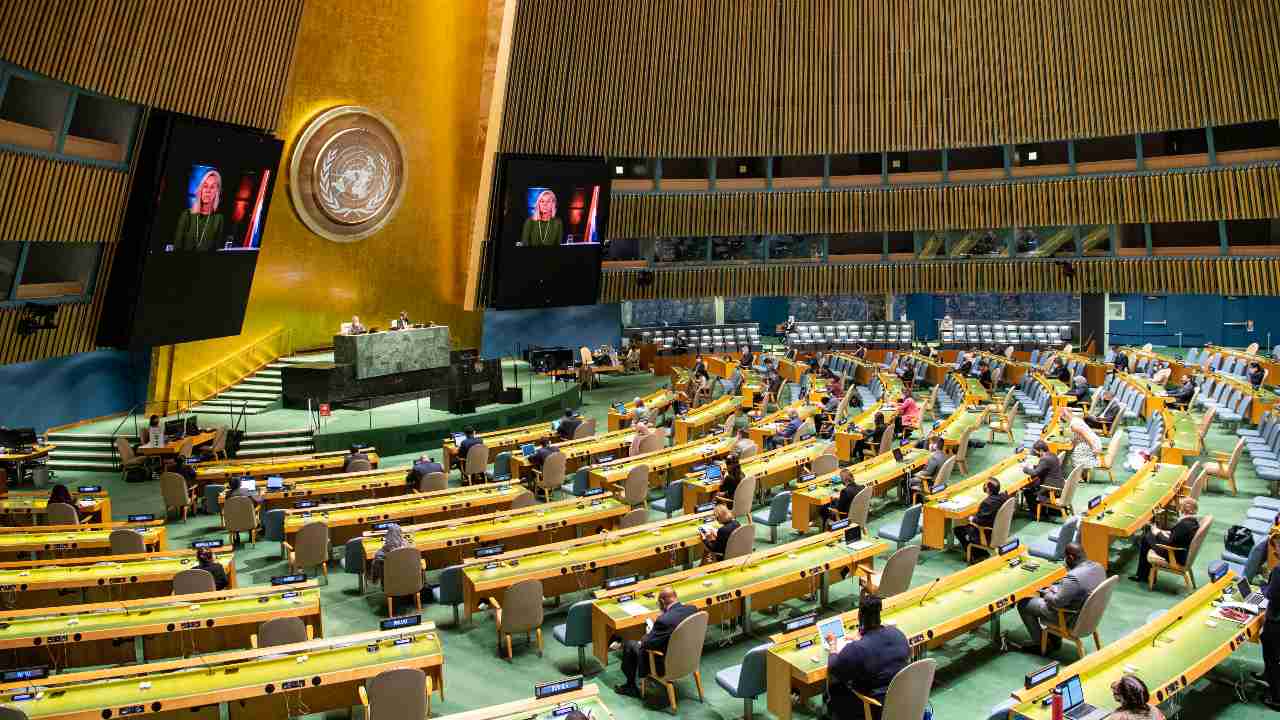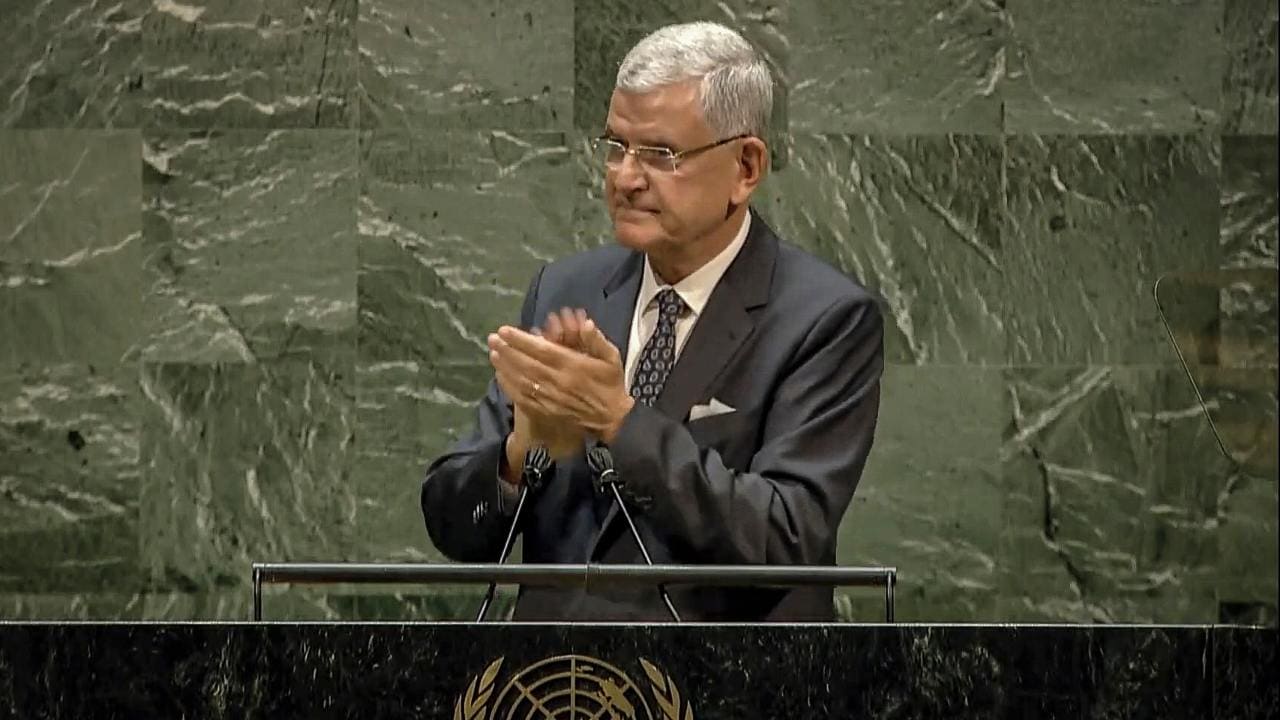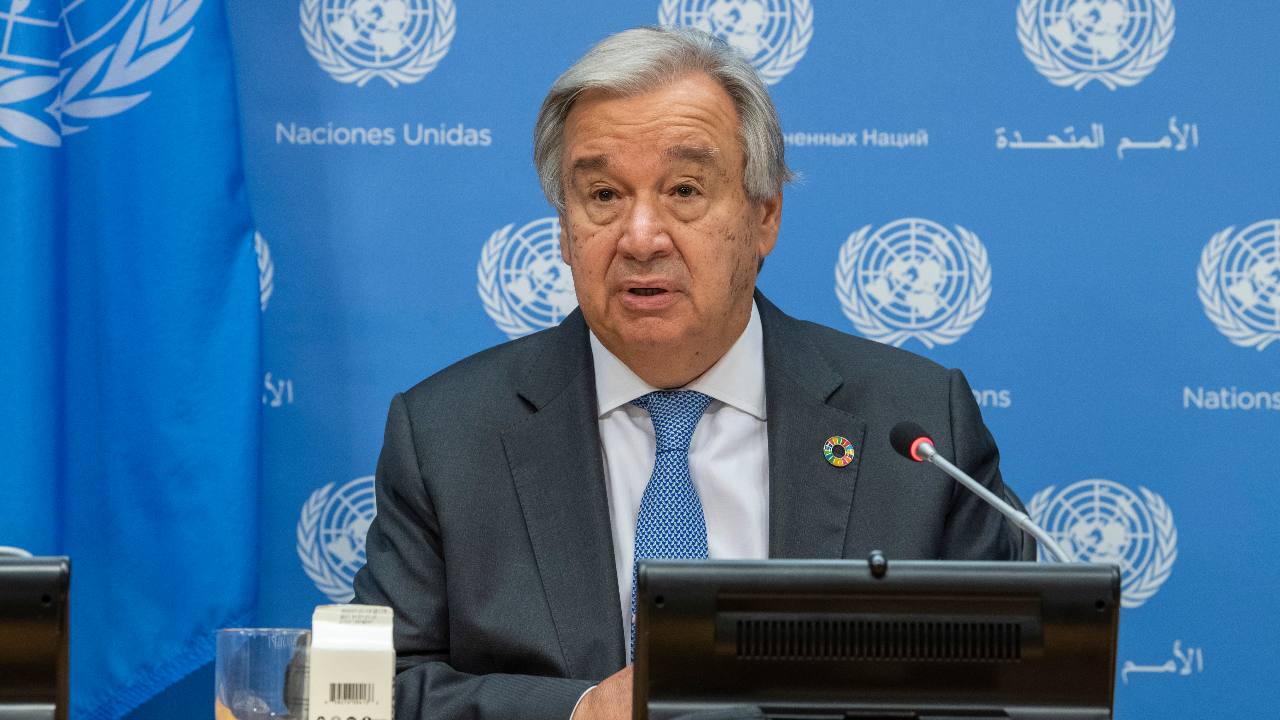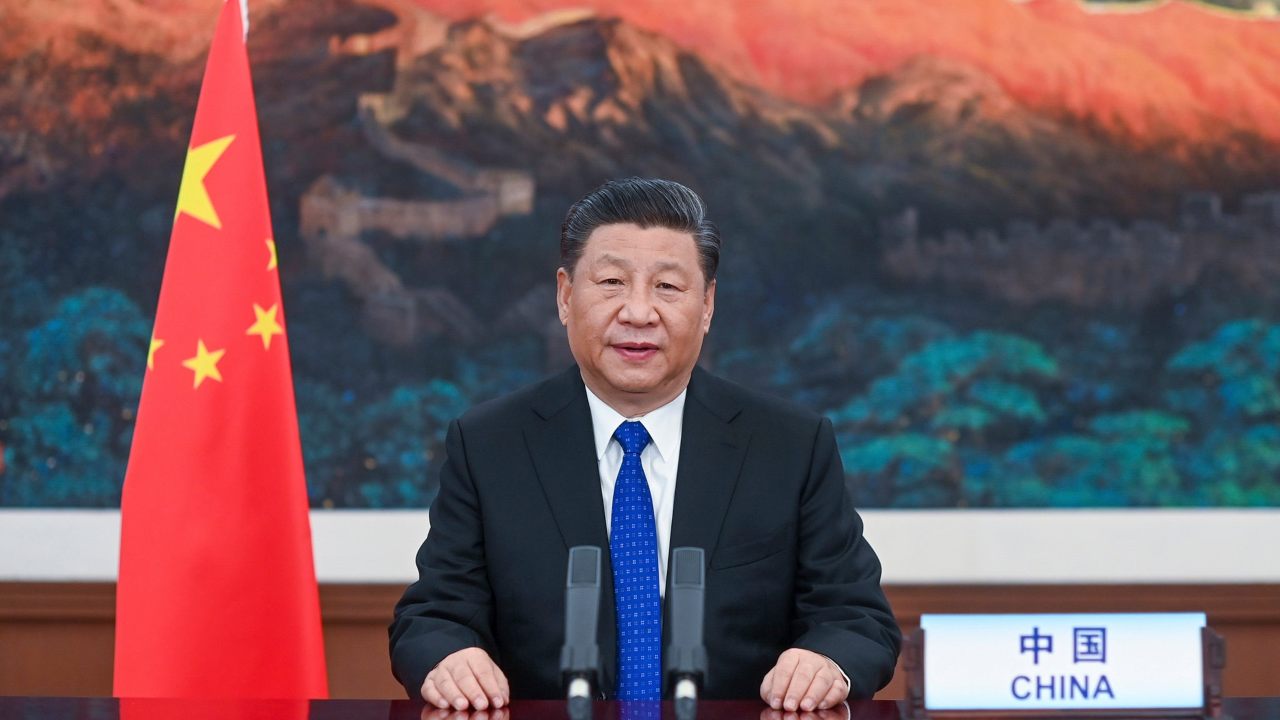Abigail BanerjiOct 02, 2020 21:57:06 IST
In September every year, the 192 Member States of the United Nations (UN) General Assembly come together from around the world to take part in a series of diplomatic discussions and multilateral meetings. This year’s 75th session of the UN General Assembly (UNGA), that started on 22nd September and went on till 2nd October, was similar in some ways but vastly different in others. For one, most of the meetings were done virtually and the statements made by members were pre-recorded. Another key difference was a separate summit dedicated solely to the protection of our nature and wildlife. This meeting marked the end of the UN Decade on Biodiversity 2011-2020 and the beginning of the UN Decade on Ecosystem Restoration 2021-2030.
The theme of the conference was “Urgent Action on Biodiversity for Sustainable Development” and was supposed to act as a precursor to the 15th Conference of Parties (COP 15) or the UN Convention on Biological Diversity (CBD) in 2021 that was to take place this year in Kunming, China. However, due to the COVID-19 pandemic, it has been postponed to next year.

The UN General Assembly gathered in New York for the yearly meet. Image credit: Rick Bajornas/UN Photo via AP
This summit had was supposed to lay the groundwork and to develop a framework where nature is put on a path to recovery by 2030 in order to meet the SDGs.
Loudest Voices at the Summit and What They Said
Volkan Bozkır
This year, the President of the UNGA is Turkish diplomat Volkan Bozkir. He kicked off the summit with an opening statement that really hit the nail right on the head.
While being soft-spoken, his words showed the extent of work that needs to be done before anyone can rest.
“Our existence on this planet depends entirely on our ability to protect the natural world around us…in the last 50 years, vertebrates – the category that includes everything from frogs to parrots to elephants – have declined by 68 percent.” Bozkir said.
“If we continue down this path, we not only lose the beautiful riches of the world around us but jeopardize food security, water supplies, livelihoods, and our ability to fight diseases and face extreme events,” he added.

Volkan Bozkir, President of the 75th session of the United Nations General Assembly, applauds as he delivers closing remarks at UN headquarters in New York. Image credit: UNTV via AP
Bozkir spoke about the importance of nature for our social and economic life but also for our health. He asked the world leaders to use this summit as a precursor for the COP15 that will take place in Kunming, China next year.
He said, “COP15 in Kunming must-do for biodiversity what COP21 in Paris did for climate change.”
Antonio Guterres
At the beginning of his statement, the Secretary-General of the UN António Guterres made a plucky remark: “Humanity is waging war on nature. We need to rebuild our relationship with it.”
Guterres said human beings are part of the fragile web of life. But with deforestation, climate change and converting the wilderness to produce food destroying earth, we are living with newer and deadlier diseases like HIV-AIDS, Ebola, and now COVID-19.
He lambasted world leaders for not keeping to their previous undertakings, saying, “Despite repeated commitments, our efforts have not been sufficient to meet any of the global biodiversity targets set for 2020.”

Secretary-General Antonio Guterres briefs reporters during the 75th session of the United Nations General Assembly Image credit: Rick Bajornas/UN Photo via AP
The UN Secretary-General has set out three priorities for conserving biodiversity. They are:
- Nature-based solutions must be embedded in COVID-19 recovery and wider development plans.
- Economic systems and financial markets must account for and invest in nature.
- Secure ambitious policies and targets that protect biodiversity and leave no one behind.
Prince Charles
Charles, the Prince of Wales made an ardent plea to the world’s political leaders and told them that we need to ‘protect, restore and invest in nature’ because it is essential to humanity’s survival. We will see ‘far greater returns’ if we take ‘the necessary, bold steps now.’
The heir-apparent said that he is working with a ‘coalition of the willing’ that will put nature, people and planet at the heart of the economy. They are all interconnected and everyone should be making sustainable choices to ensure that we have a future. To that end, he also encouraged leaders and policymakers to listen and learn from indigenous people. He believes that they have the wisdom and a sixth sense about nature that others might’ve discarded in the modern world.
He ends his statement on a dire note by saying “Ladies and gentlemen, we are, I am afraid, at the last hour.”
Archana Soreng
An environmental activist and a member of the Khadia tribe, Archana Soreng is also one of the seven members of the Youth Advisory Group on Climate Change established by Guterres as part of the UN Youth Strategy. She was also one of the only youth speaking at the Biodiversity summit, representing India and the indigenous peoples. She spoke about how important it is that indigenous practices are nurtured. She also said that communities living in an area should be included in the decision‑making process for conservation in their areas and their rights to the forests and lands are respected.
“We Will be able to Continue Protecting Biodiversity Only when we Feel Secure, for which it is important to Respect, Recognise & Enforce our Rights over our Land & Forest “#BiodiversitySummit #UNGA2020 @GhoshAmitav @chikikothari @kanchikohli @GlobalLF @landcoalition @gfc123 https://t.co/0LGwRTY7l2
— ARCHANA SORENG (@SorengArchana) October 1, 2020
“We Should be the Leaders of Conservation, Not Victims of It.
More Proactive Steps are the way forward to ensure Intersectional & Intergenerational Equity “#BiodiversitySummit #UNGA2020 @UNBiodiversity @UN4Indigenous @ipmsdl_ @FFFIndia @PKashwan @GhoshAmitav @VikalpSangam https://t.co/Weu4KYoMvS— ARCHANA SORENG (@SorengArchana) October 1, 2020
Soreng said, “Doubling protected areas to cover 30 percent of the globe, as some want to see in the post-2020 global biodiversity framework, will lead to immense human right violations. It could constitute the biggest land grab of world history reducing millions of people to landless poverty – all in the name of conservation.”
“Removing us from our land in order to protect nature is deeply colonial and environmentally damaging. We should be leaders of conservation – not victims of it,” she added.
China
A couple of day before the summit, President Xi Jinping shocked the world with an announcement that China will be carbon neutral by 2060. However, he appeared relatively tamer on the world stage in his pre-recorded messages. He showed his support towards the UN’s work and urged other countries to stay on the mark with the Paris Accord. He also used his time to talk about the upcoming Convention on Biological Diversity 15, to be hosted by China this year, now pushed to 2021 owing to the coronavirus pandemic.

President Xi Jinping. Image: WHO/AP
He also tooted China’s horn towards the end of his speech, saying, “China is happy to share with all parties its experience of advancing biodiversity governance and ecological progress.”
While China has taken steps in conversation and protection, it is also one of the highest emitters of the world and has shown no signs of actually slowing down its carbon emissions. In fact, after China’s virus-induced lowdown in February, CO2 emissions have bounced back to pre-crisis level, according to a report by Carbon Brief.
Brazil
The President of Brazil Jair Bolsonaro, during his pre-recorded speech, came off strong and argued in favour of natural destruction for economic and developmental purposes from the get-go. He started by saying that the use of the “extremely vast resources” of Brazil is the priority of the country.
Bolsonaro’s statement focused on ensuring the world knew that his government focuses on both the economy and preservation of nature. In the case of Brazil, this just happens to be the last partially-untouched rainforest in the world in the Amazons.
“We must reach a consensus and properly combine sustainability and development; environmental preservation and economic innovation,” Bolsonaro said. “We must preserve our biomes and also overcome social challenges like unemployment and poverty while guaranteeing food security to our people.”
Bolsonaro also declared that countries have the right to use their natural resources.
“That’s precisely what we intend to do with the huge wealth of resources in the Brazilian territory,” he said.
Pakistan
Prime Minister of Pakistan Imran Khan, addressing the council, said that his country was home to a diverse range of environmental features, and pledged to protect the country’s flora and fauna.
With Pakistan country among the top ten most vulnerable to climate change impacts, they have engaged local communities in planting a total of ten billion trees, Khan said. This will provide employment opportunities while also protecting the environment.
Prime Minister Khan also iterated that Pakistan has expanded the number of national parks in the country, from 30 to 39.
Absentees
A notable absentee during the summit was US President Donald Trump, who is in the process of exiting from the Paris Agreement. Trump is simultaneously not getting along too well with the UN’s health counterpart, the World Health Organisation (from which Trump has also withdrawn support). The US did not bother with sending a representative to the UN event.
As per a Greenpeace report, Trump’s absence at the UNGA Summit was evident of his utter disregard for biodiversity, “from gutting protections under the Endangered Species Act to undermining the integrity of the National Environmental Protection Act.”
The US is the only one of the five permanent member states that did not make an appearance at the Convention on Biological Diversity.
Another major player absent at the summit was Australia. The Guardian reported that an Australian government spokesperson said the country would not agree to environmental targets “unless we can tell the Australian people what they will cost to achieve and how we will achieve it”.
Before the start of the summit, over 60 heads of state and governments signed the Leaders’ Pledge for Nature and promised to slash air pollution, eliminate ocean plastic and transition to more sustainable food systems by 2030. Countries like Germany, France, Britain and Mexico promised to develop an “ambitious” plan ahead of next year’s COP15 Biodiversity Conference. But major countries including China, Brazil, Australia, Russia and India have not signed so far.
Post a Comment